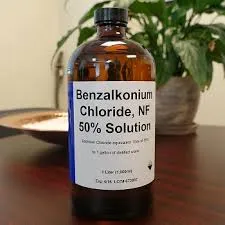what is poly aluminum chloride
What is Poly Aluminum Chloride?
Poly Aluminum Chloride (PAC) is a versatile and widely used chemical compound, primarily employed in water treatment processes. It is a coagulant that helps in the removal of impurities and suspended particles from water, making it safe for consumption and various industrial applications. PAC is a type of aluminum-based coagulant that consists of a mix of aluminum hydroxide and aluminum chloride.
What is Poly Aluminum Chloride?
In municipal water treatment plants, PAC plays a crucial role in ensuring that drinking water meets the stringent safety standards set by health authorities. By facilitating the removal of pathogens, heavy metals, and other harmful contaminants, PAC contributes to the production of clean and safe drinking water. Its effectiveness in various pH ranges also makes it suitable for different water sources, whether they are surface waters or groundwater.
what is poly aluminum chloride

In addition to water treatment, PAC finds applications in various industries, including paper manufacturing, textile processing, and wastewater treatment. In the paper industry, PAC is used as a retention agent, enhancing the efficiency of fiber retention and filler utilization, which ultimately improves the quality of paper products. Similarly, in wastewater treatment, PAC aids in the removal of suspended solids and phosphorus, helping to meet environmental discharge standards.
The use of PAC also presents environmental benefits. As it operates effectively at lower concentrations compared to traditional coagulants, its usage can lead to reduced chemical costs and lower sludge production in treatment facilities. This is critical for minimizing the environmental impact of wastewater treatment processes, as less sludge means fewer disposal challenges and reduced landfill burden.
Despite its many advantages, the application of Poly Aluminum Chloride must be carefully managed. Overdosage can lead to residual aluminum in treated water, which raises health concerns. Therefore, precise dosing and monitoring are essential to maximize PAC's benefits while minimizing potential risks.
In conclusion, Poly Aluminum Chloride is a valuable coagulant widely utilized in water treatment and various industrial processes. Its efficiency in coagulation, versatility across pH levels, and reduced environmental impact make it a preferred choice in ensuring the safety and quality of water. As industries increasingly focus on sustainability and efficient resource management, the role of PAC is likely to continue growing, demonstrating its importance in both public health and environmental protection.
-
Pbtc Scale InhibitorPBTC: A Scale Protector for Industrial Water TreatmentNewsAug.05,2025
-
Organic Phosphonate: An Efficient Defender in the Field of Scale InhibitionNewsAug.05,2025
-
Hydrolyzed Polymaleic Anhydride: Green Pioneer in Scale Inhibition FieldNewsAug.05,2025
-
PAPEMP Polyamino Polyether Methylene Phosphonic Acid For SaleNewsAug.05,2025
-
Flocculant Water Treatment: A Pioneer in Purification in the Field of Water TreatmentNewsAug.05,2025
-
Benzyl Isothiazolinone: An Efficient and Broad-Spectrum Antibacterial Protective GuardNewsAug.05,2025





